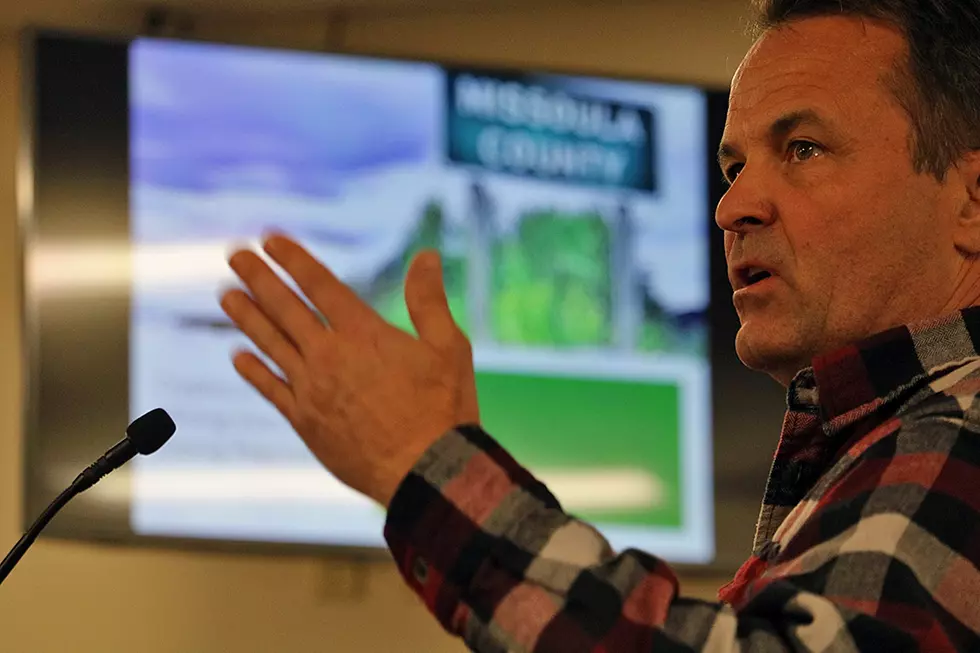
Missoula County regulates cryptocurrency mining; businesses fear losses
One day after pledging to bring 100 percent renewable electricity to the Missoula urban area by 2030, Missoula County commissioners on Thursday cited a public emergency and placed interim regulations on new or expanded cryptocurrency operations until a solution to the industry's large energy consumption is found.
Commissioners said the emergency zoning measure doesn't target a specific business. But only one cryptocurrency operation exists in the county, that being HyperBlock, which said it could go out of business under the weight of the county's new regulations.
“You're really targeting one business and that's the only business that exists that will be impacted by these regulations,” said James Bowditch, an attorney representing HyperBlock.
“Nobody disagrees, including myself and my client, that climate change is important. But this is not the way to do it. Doing so this way will only result in one thing, and that's what I'm fearful of, and that's a lawsuit.”
HyperBlock, a cryptocurrency mining center located in Bonner, fell under the commissioners' radar last year due to its energy consumption. According to county figures, it equals the electricity consumed by one-third of all households in Missoula County.
Thursday's interim zoning marked the county's first test at backing its own resolution to achieve 100 percent clean electricity by 2030 in a push to address climate change.
“As near as I can tell, cryptocurrency mining is using exponentially more energy than any other energy user,” said Commissioner Dave Strohmaier. “As far as an industry goes, it's a grotesque amount of energy and we've got to take steps to address it.”
The county's emergency zoning effectively prevents HyperBlock from expanding its current facility while also preventing any new cryptocurrency mining center from setting up shop in Missoula County.
But a mining center could locate in Missoula or expand if it develops or buys renewable energy to offset 100 percent of the electricity consumed by its mining operation. While HyperBlock already uses 100 percent renewable hydropower, the county's ordinance says it must be “new,” not existing, renewable power.
“The mining operation must be able to establish that their actions will introduce new renewable energy onto the electrical grid, beyond what would have been developed otherwise,” said Diana Maneta, the county's climate action adviser.
“Given the urgency of addressing climate change, and the fact the Intergovernmental Panel on Climate Change tells us we need to phase out fossil fuel combustion entirely in order to avoid catastrophic change, we need to go beyond where we are now.”
While owners and employees of HyperBlock never disputed the realities of climate change, they believe they're being targeted by the county, despite their environmental efforts.
The mining center has already entered into a long-term contract with NorthWestern Energy to purchase nothing but renewable energy, and it works with a local e-Waste recycling business licensed by the Montana Department of Environmental Quality.
Dan Stivers, the mining operations manager at HyperBlock, accused the county of hypocrisy, saying it remains powered in part by eastern Montana coal while his company has already secured 100 percent renewable electricity.
“We could have used Colstrip energy, just like the county does. It was cheaper, but we didn't do it,” said Stivers. “Yet we're being persecuted as if we don't care about the environment. There's no substance behind this. No one is looking at what's actually happening here.”
That concern was echoed by attorneys representing the owners of the Bonner Mill Site, where HyperBlock is based with a number of other businesses. Both Erika Peterman and Bowditch said the county's actions could put HyperBlock out of business.
And if that happens, Bonner Mill Site owner Steve Nelson said, the entire mill site could go under, along with the 400 jobs located there. HyperBlock itself employs roughly 19 people and serves as the anchor tenant for the Bonner yard.
“If you put HyperBlock out of business, I think you're going to put us out of business,” Nelson said. “I don't think that's something I'm very excited about, and I think there's some people in the community and about 400 employees working out there that wouldn't be very excited about it either.”
A number of business advocates argued on HyperBlock's behalf and urged the county to reconsider its ordinance and its approach. They included the Missoula Chamber of Commerce and at least one business that receives the bulk of its contract work from HyperBlock.
But environmental advocates countered, urging the county to follow the resolution it signed the day before and take concrete steps to bring 100 percent renewable electricity to the Missoula urban area.
“You and the City Council supported a bold vision for a greener, healthier Missoula, one that's powered by 100 percent renewable electricity,” said Skye Borden, state director of Environment Montana. “Today the hard part begins. Today and every day after it, we have to take concrete steps that bring us closer to meeting that goal and to creating the world we want to live in, and that's not going to be easy.”
Under state law, the county can adopt an emergency zoning ordinance if it can prove a public emergency. That includes protecting “public health, safety, morals, and the general welfare.”
“The morals thing, you could talk all day about the values our community holds, and how this excessive amount of energy for really no gain to the community goes against the values of this community in a very strong way,” said Commissioner Cola Rowley.
And while Rowley said the county believes strongly in economic development, mining cryptocurrency doesn't meet the definition written into the county's growth policy.
“Our growth policy says economic measures should focus on long-term economic development that is fiscally responsible and does not unduly compromise life or the natural environment,” she said. “This industry does not comply with the economic development goals of our growth policy.”
